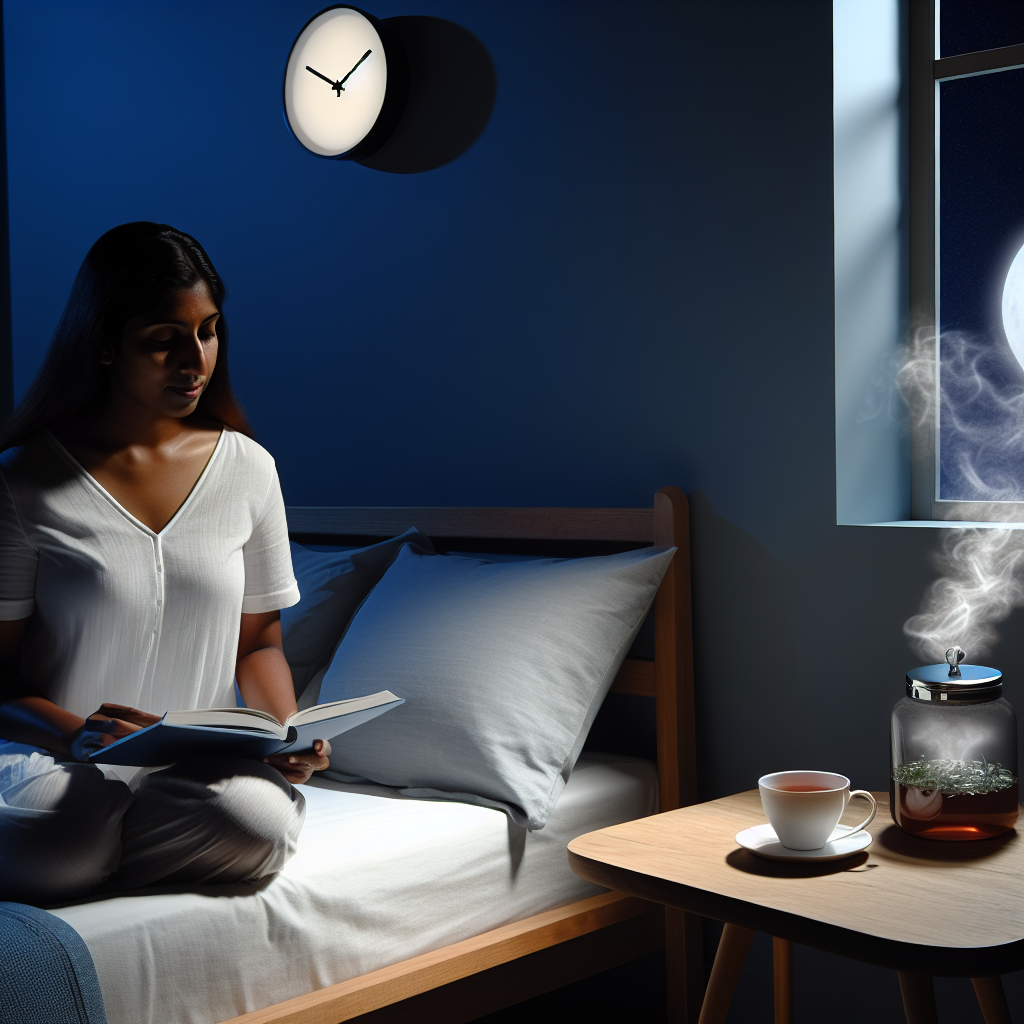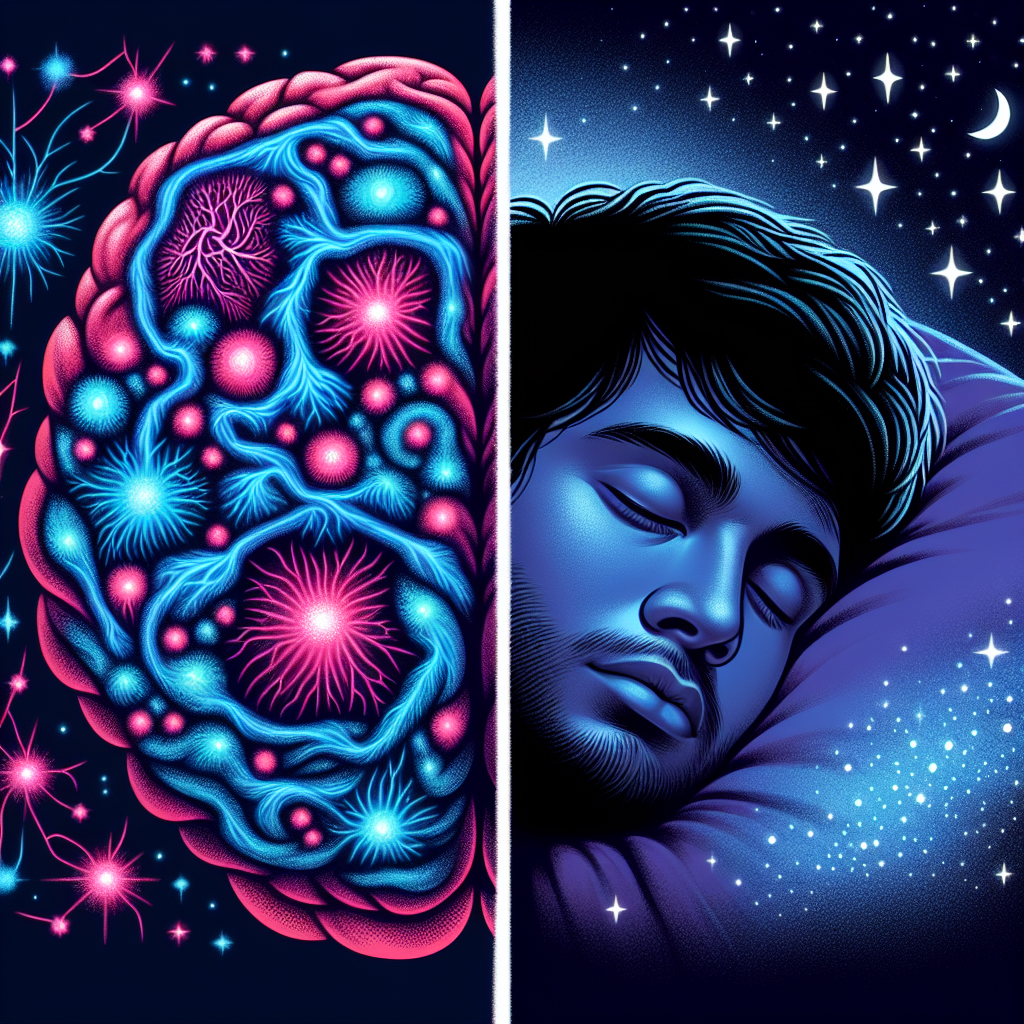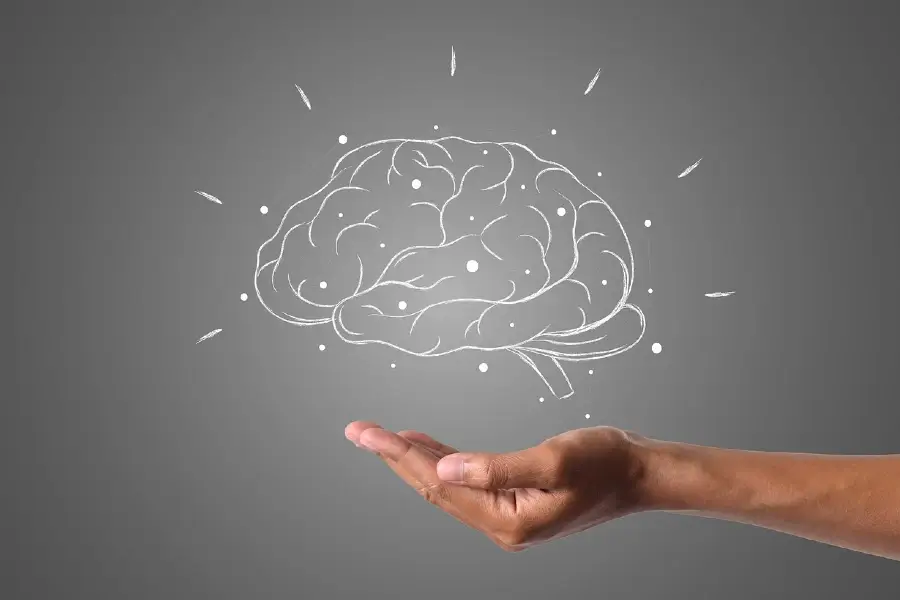Anxiety-Related Sleep Issues: New Approaches
Introduction
Anxiety and sleep disturbances share a deeply intertwined relationship. When one struggles with excessive worry, nervousness, or chronic stress, the body remains in a heightened state of alertness, making it difficult to fall asleep or stay asleep. Anxiety-related sleep issues are highly prevalent, affecting millions of individuals worldwide. According to the Anxiety & Depression Association of America (ADAA), anxiety disorders are among the most common mental health conditions, impacting around 40 million adults in the United States alone. One of the most common complaints among individuals experiencing anxiety is difficulty sleeping, a condition often referred to as insomnia.
The biological relationship between anxiety and sleep disruptions is driven by an overactive nervous system. When an individual is anxious, the body releases stress hormones like cortisol and adrenaline, which prepare the body for a perceived threat. While this response is beneficial for short-term survival, chronic activation can be detrimental to sleep health. High cortisol levels, for example, can disrupt the body’s natural circadian rhythm, making it harder to initiate and sustain restful sleep.
Beyond the physiological effects, anxiety often leads to cyclical thought patterns that exacerbate sleep difficulties. Many individuals struggling with anxiety experience persistent rumination—an inability to shut off worrisome thoughts when trying to rest. This form of cognitive hyperarousal prevents deep relaxation, leading to fragmented or light sleep. Additionally, individuals with generalized anxiety or panic disorders may face disruptive nighttime awakenings due to nightmares or sudden spikes in alertness.
Given the impact of anxiety on sleep, researchers and medical professionals are continuously exploring new approaches to managing this pervasive issue. While traditional treatments such as cognitive-behavioral therapy (CBT) and prescription medications remain effective, novel strategies—including mindfulness meditation, digital therapeutics, and advances in sleep technology—are gaining traction in the sleep health community. In this article, we will explore the latest approaches endorsed by medical and psychological studies in addressing anxiety-related sleep disturbances. These evidence-based methods aim to promote relaxation, regulate stress responses, and ultimately improve the quality of sleep for people of all ages.
Latest Medical and Professional Studies on Anxiety and Sleep
Recent research has provided valuable insights into the impact of anxiety on sleep and how innovative treatments can alleviate related disruptions. Here, we summarize cutting-edge studies and emerging therapeutic approaches.
The Power of Cognitive Behavioral Therapy for Insomnia (CBT-I)
Cognitive Behavioral Therapy for Insomnia (CBT-I) has been widely studied and continues to be a gold-standard treatment for anxiety-related sleep problems. According to a study published in JAMA Internal Medicine, CBT-I was found to significantly improve sleep quality in individuals suffering from both insomnia and anxiety disorders ([Source](https://jamanetwork.com/journals/jamainternalmedicine/article-abstract/2682905)). This therapy works by identifying negative thought patterns, modifying sleep-inhibitory behaviors, and establishing a healthier sleep routine. Research indicates that CBT-I can be as effective as medication in managing insomnia, without long-term side effects.
Mindfulness-Based Stress Reduction (MBSR): A Natural Sleep Aid
Mindfulness practices, including meditation and deep-breathing exercises, have gained scientific support for their benefits in reducing both anxiety and sleep problems. A study in JAMA Psychiatry demonstrated that participants who engaged in mindfulness-based programs experienced significant improvements in sleep efficiency and reductions in nighttime awakenings ([Source](https://jamanetwork.com/journals/jamapsychiatry/fullarticle/2771375)). The practice encourages relaxation by focusing on present-moment awareness and letting go of anxious thoughts, which can otherwise interfere with sleep.
The Role of Digital Therapeutics and Mobile Apps in Sleep Health
The rise of digital health platforms has introduced effective, non-invasive interventions for anxiety-related sleep disorders. Studies have shown that mobile applications offering guided breathing, sleep meditation, and bedtime cognitive exercises can improve sleep outcomes. A study from the Sleep Research Society found that individuals using digital cognitive therapy applications reported better sleep onset and reduced anxiety-related sleep disturbances compared to those in control groups ([Source](https://academic.oup.com/sleep/article/44/2/zsaa173/5909255)). Examples include apps like Headspace and Calm, which provide structured techniques to reduce pre-sleep stress.
Weighted Blankets: A Cozy Solution for Anxiety-Driven Insomnia
A novel remedy for anxiety-driven insomnia is the use of weighted blankets, which provide deep pressure stimulation to induce relaxation. A randomized control trial published in the Journal of Clinical Sleep Medicine found that adults with generalized anxiety disorder who used weighted blankets reported decreased nighttime awakenings and lower cortisol levels ([Source](https://jcsm.aasm.org/article.aspx?articleid=2776921)). The deep pressure provided by these blankets mimics the calming effect of a gentle embrace, triggering the parasympathetic nervous system and promoting better sleep.
Nutritional Interventions and Herbal Remedies for Sleep Enhancement
Certain natural compounds have been explored for their role in mitigating anxiety-related sleep issues. Magnesium, for example, has been shown to promote relaxation by regulating neurotransmitter activity linked to stress reduction. A study in Nutrients Journal found that magnesium supplementation improved sleep efficiency in individuals suffering from stress-related insomnia ([Source](https://www.mdpi.com/2072-6643/12/6/1667)). Similarly, herbal remedies like valerian root and chamomile have been researched for their ability to support relaxation and sleep initiation. However, further studies are needed to confirm their efficacy across diverse populations.
Conclusion
Anxiety-related sleep disturbances continue to affect a significant portion of the population, particularly those with high-stress lifestyles, generalized anxiety disorders, or chronic worry patterns. Traditional methods such as CBT-I and mindfulness therapies have proven effective, while the emergence of digital tools, weighted blankets, and dietary interventions offer additional pathways for relief. As research continues to uncover the intricate relationship between anxiety and sleep, integrating multiple strategies—tailored to individual needs—can lead to improved overall well-being.
For individuals struggling with anxiety-driven sleep issues, the key takeaway is that assistance is available in both conventional and innovative forms. Seeking evidence-based interventions, making lifestyle adjustments, and embracing calming practices can collectively foster restful sleep. If symptoms persist, consulting with a healthcare professional specializing in sleep medicine or mental health can provide tailored guidance to address both anxiety and sleep disturbances effectively.
By staying informed about the latest scientific advancements, individuals can take proactive steps toward better sleep health, ultimately improving their mental and physical well-being.
References
1. JAMA Internal Medicine – Cognitive Behavioral Therapy for Insomnia ([Link](https://jamanetwork.com/journals/jamainternalmedicine/article-abstract/2682905))
2. JAMA Psychiatry – Mindfulness-Based Stress Reduction ([Link](https://jamanetwork.com/journals/jamapsychiatry/fullarticle/2771375))
3. Sleep Research Society – Digital Cognitive Therapy for Sleep ([Link](https://academic.oup.com/sleep/article/44/2/zsaa173/5909255))
4. Journal of Clinical Sleep Medicine – Weighted Blankets and Sleep ([Link](https://jcsm.aasm.org/article.aspx?articleid=2776921))
5. Nutrients Journal – Magnesium Supplementation and Sleep ([Link](https://www.mdpi.com/2072-6643/12/6/1667))
Summary:
The article explores the relationship between anxiety and sleep disturbances, highlighting the latest medical and professional studies on innovative treatments to address this pervasive issue. It covers the impact of cognitive-behavioral therapy, mindfulness practices, digital therapeutics, weighted blankets, and nutritional interventions on improving sleep quality for individuals struggling with anxiety-related sleep problems. The article emphasizes the importance of seeking evidence-based, tailored strategies to manage anxiety and foster better sleep, ultimately leading to improved overall well-being.

Dominic E. is a passionate filmmaker navigating the exciting intersection of art and science. By day, he delves into the complexities of the human body as a full-time medical writer, meticulously translating intricate medical concepts into accessible and engaging narratives. By night, he explores the boundless realm of cinematic storytelling, crafting narratives that evoke emotion and challenge perspectives.
Film Student and Full-time Medical Writer for ContentVendor.com




